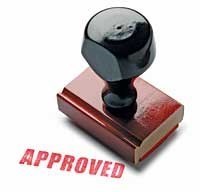
Tighter lending requirements for Federal Housing Administration (FHA)-backed mortgages for condos have put financial and administrative pressure on condos all over the country at a time when many are ill prepared for any new challenges.
The most onerous of the new requirements are mandated reserve fund contributions, a 15 percent limit on condo fees delinquencies, and the specification that the condominium itself obtain FHA approval—this resulting in reams of additional paperwork for community associations.
The new requirements aren’t mandatory and they don’t affect existing community associations directly, but they do affect the ability of owners to sell their units. FHA-backed loans have taken over the lion’s share in some markets because they allow modest 3.5 percent down payments, making them the only option for many first-time buyers and others without a lot of cash on hand.
Condos that don’t seek FHA-approval under the new guidelines could find themselves losing property values and community support, warned White Plains-based National Condo Advisors CEO Orest Tomaselli at the Cooperator's annual Co-op & Condo Expo earlier this spring.
“If there is no financing [for condo sales]," says Tomaselli, whose firm helps condos achieve FHA approval. "People start paying their maintenance [fees] late. People stop caring about the development because they can’t refinance. They can’t get out, they can’t sell their units, nobody can buy. It’s a problem."
Paying for Others’ Excesses
According to Bank of America Vice President Andrew Leff, lending parameters have changed drastically in response to the banking crisis over the past two years. Fannie Mae and Freddie Mac requirements are tougher and lending restrictions have been enacted that affect both commercial investors and first time homebuyers. Banks are looking at the individual co-op or condominium building’s financial picture before approving the borrower, he says.
“We’re back to standard vanilla loans being made,” says Leff, who is also divisional builder manager at BofA. “Today we have to understand condominium lending nuances. It’s not just the [borrower’s] credit but it’s the condo that’s approved.”
Allie Baldassari, a mortgage loan officer at the bank, adds that these days, buyers have to have their financial houses in order before applying for a mortgage. Banks need more than just income, assets and credit—they need documentation for everything, and each loan undergoes much more scrutiny than ever before.
These new, stricter requirements have not been popular in the region, with some saying New Yorkers and other Northeasterners are paying the price for subprime loan excesses and large, failed developments in other parts of the country. Acknowledging that the guidelines have been enacted to safeguard taxpayer money, Medway, Massachusetts-based realtor and board member for the Greater Boston Association of Realtors Paul Yorkis says, “I don’t mind if the FHA is protecting the taxpayers, but the problems they are trying to protect taxpayers from have happened in Florida, or in Nevada—not in the Northeast."
“We typically don’t see 400-, 600-unit condos being built [here]," Yorkis continues. "When you see that, it’s the exception to the rule. In Florida and Arizona and other parts of the United States, those are considered small to modest condominium developments. So what's happened is small projects...are being treated and being controlled in the same way as a large project, and it’s overkill. I would have preferred that the FHA regionalize its policies based upon market conditions, rather than setting a one-size-fits-all national standard, which doesn't work."
Popular or not, the standards are affecting condos across the region, both existing ones and projects under development. The majority of the standards, discussed below, are aimed at existing community associations.
10% Reserve Requirement
The most problematic of the new FHA regulations for condo associations is the requirement that annual budgets contain a minimum 10 percent reserve fund contribution. The mandate comes at a time when many cash-strapped condos have cut back on funding reserves in recent years.
At the Expo seminar detailing the new regulations, Tomaselli called the reserve mandate the “biggest issue” currently facing the condo industry. “I can’t wait for someone to write an article that says, ‘Everybody’s maintenance is going up 10 percent,’ because that is what is going to happen," he said." There is not a choice anymore."
The lone exception to the 10 percent requirement, Tomaselli noted, are condos that have a legitimate reserve study that mandates a lesser financial contribution—two examples being a newer community with low maintenance requirements or “green” buildings that only require two or three percent reserves because of long-lasting green materials. “That’s a reason for doing a reserve study,” Tomaselli said.
15% Delinquency Threshold
Another problematic requirement mandates that FHA-backed loans will not be approved at condos with more than a 15 percent delinquency rate on monthly condo fees.
According to Tomaselli, some condominiums are on thin ice in this department. “If you have a bad month, if you have some homeowners who have lost their jobs, it’s very easy to go above that 15 percent. And the lender cannot lend in that condo if you have more than 15 percent,” he said.
Attorney Stephen Marcus, a partner with Marcus, Errico, Emmer & Brooks, PC, in Braintree, Massachusetts says condos have the ability to keep their delinquencies beneath 15 percent if they are “aggressive” in pursing collections. “The law is clearly on the side of an association being able to collect its money if it keeps the pressure on the unit owner and the lender to pay the condominium fees,” he says.
Approval and Due Diligence
The part of the new regulations that’s generating considerable office work for condos is the requirement that the entire condo has to apply for and receive FHA approval for individual loan applications to even be considered.
According to Marcus, the time and money involved in the application process is considerable. “There’s a lot of documentation that needs to be provided, and there’s a legal opinion that’s required,” said Marcus. “The managers typically charge a fee for putting together some of the documents, and the lenders or approval companies also charge a fee for submitting it to FHA. Associations could be spending $3,000 to $5,000 for the approval.”
Adding to the paperwork for condos is the requirement that potential lenders must do their own research and independently certify that the condo is FHA-compliant. And if one bank certifies that a condominium is FHA compliant, that certification won’t be valid for the second, third or fourth bank that comes along—they will all need documents and paperwork from the condo.
To make it easier for potential buyers to obtain loans on individual condo units, Tomaselli suggests that condos develop relationships with three or four loan providers, which will then become open to making loans to buyers. “Let [lenders] know the condo is FHA-approved, is Fannie Mae-approved and ‘this is the way we got it approved,'" he says. "We think it’s an integral tool for a property manager and the board… to help their developments out."
Marcus notes that a condo’s workload for loan approval will decline after the initial FHA loan approval is run through for one lender. “There will be some, but I don't think it's going to be [a lot] once the approval is done. I think the managers will charge a fee for doing the initial approval, the typical questionnaire that they fill out, but I think after that, it won't be a dramatic fee. I think the lender questionnaire will answer most of the new questions that the lender needs to know.”
The Magic 680
On the consumer loan side, Tomaselli says that requirements for the loan seeker have been tightened up as well—the most dramatic being that successful FHA loan applicants must have a minimum 680 credit score. “That [680] might not seem like a lot, but most people are around a 660 credit score,” he says. “The buyer pool for people who can actually obtain a mortgage in a condo has shrunk to such a small number. These Fannie Mae requirements make it difficult for an average-Joe buyer to buy a unit.”
If buyers cannot get an FHA-backed loan, Tomaselli says they will be forced to obtain conventional financing with a minimum 20 percent down payment requirement. “If you think about the numbers, on average condominium units across the country are looking at a $350,000 sales price. You’ll need to come up with $70,000 in cash plus closing costs to buy the unit. I know a lot of people, but I don't know a lot of people who have $70,000 in cash.”
Yorkis said he is not seeing a tremendous number of unqualified buyers’ loans falling through because word is getting around that prospective buyers need to be financially solid to even apply for FHA-backed loans. “Mortgage representatives have done a very good job of telling prospective borrowers what they need to do, so the buyers are saying to themselves, ‘I have to do all this stuff. I'm going to wait until I've done everything—until my records are in order, my credit score is up, and we have more money to put down.’ I think the level of understanding has gone up considerably."
Yorkis goes on to say that buyers who are obtaining FHA-backed mortgages tend to be “smart buyers” who understand the new rules of the game. “They’re wise about their use of credit. and about paying the bills on time," he says. "They have developed a relationship with the lender or mortgage rep, somebody who knows them as being well-documented in terms of their employment history, all that stuff. It means the lender knows who they’re lending to. And the smart buyer creates that relationship, works with that lender, makes sure that lender has all the documentation. Make sure that they keep everything up to date, and I found that the smart buyers who do that have a much easier time.”
New Condos Have Tougher Rules
While the new FHA regulations have put the squeeze on existing condos, new developments are being pinched even harder.
The hardest requirement is an outright prohibition on renting out condos in new developments—a tactic which has helped many developers with cash flow until sales kick in. Tomaselli said the new requirement has “plunged the developer into foreclosure in some cases, and there’s so much distress in the marketplace because of this.” There are “certain ways” to get projects approved with renters, but it involves jumping through many hoops, he added.
Other thorny issues for developers include a requirement that least 50 percent of the total units must be sold before FHA-backed mortgages can be issued, and a rule that no more than 10 percent of the units may be owned by one investor.
That being said, new buildings in the city are taking steps to make sure they're FHA approved before the first unit is even in contract.
One such development is the eco-friendly Metropolis condo in Harlem, which was FHA-approved in April of this year. According to Stephen G. Kliegerman, executive director of Halstead Property Development Marketing, with FHA approval, qualified buyers will now be able to purchase homes at Metropolis with a down payment as low as 3.5 percent. “FHA Loans, together with energy efficiency cost-savings, offer serious value to potential buyers,” says Kliegerman. “The availability of FHA loans expands the market of potential buyers and makes it easier for qualified buyers who may have found it difficult to obtain mortgages previously.”
Also in Harlem, the 12-story, 73-unit Livmor condo development at 301 West 115th St has received financing approval from the FHA as well.With units starting around $500,000, “Securing FHA approval on the heels of hitting the 50 percent sold benchmark is terrific news for both Livmor and our prospective buyers,” says principal Craig Livingston. “Now more people will have to opportunity to buy into the building.”
Across town, and on the other side of the East River, the L haus condo project has also gotten on-board with the new federal requirements, allowing properly qualified residents to obtain up to 96.5% financing for new units.
“Receiving FHA approval is a great accomplishment," says Karen Mansour, executive vice president of marketing and sales for the Development Marketing Group at Prudential Douglas Elliman. "Over the past couple of years, obtaining a mortgage has been complicated and the qualifying factors have been more stringent, but with the FHA option we hope financing will be easier for prospective buyers.”
Logjam Predicted This Fall
Looking ahead, Marcus predicts more gloom and a possible bright spot.
At the end of 2010, Marcus said, an administrative logjam will set in as condos that already have FHA approval put in their applications for renewal—the renewal documents won’t be even accepted until November 1.
On the bright side, Marcus says, the regulations will likely be revised this fall—most likely in October. Any revisions would be announced in a new “mortgagee letter” from Housing and Urban Development (HUD), the agency promulgating the new rules. This would be the third mortgagee letter issued since last year, Marcus says. And, he said, it’s possible any revisions could be beneficial to condos. “Things could change,” he says.
Jim Douglass is the managing editor ofNew England Condominium magazine, a Yale Robbins' publication.





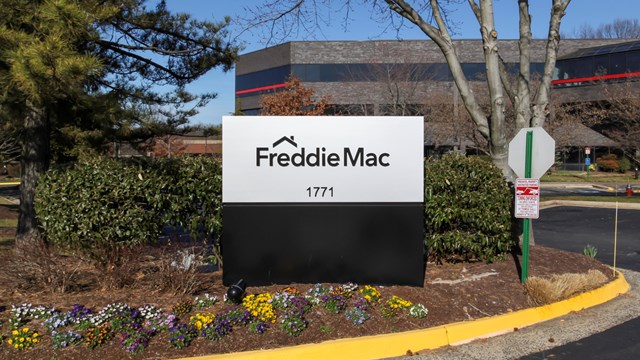
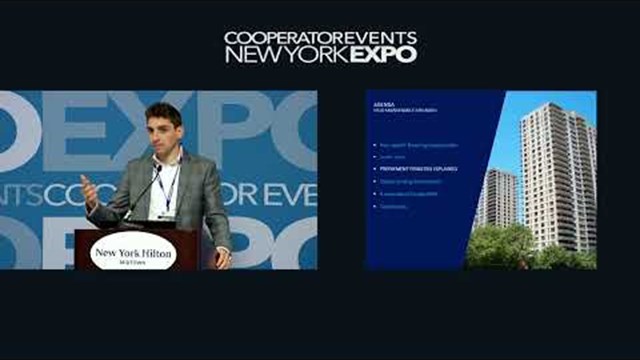
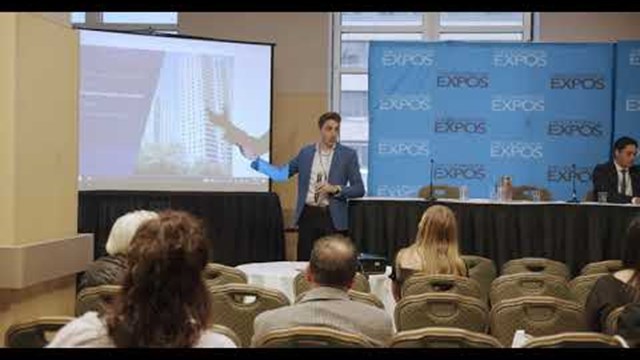
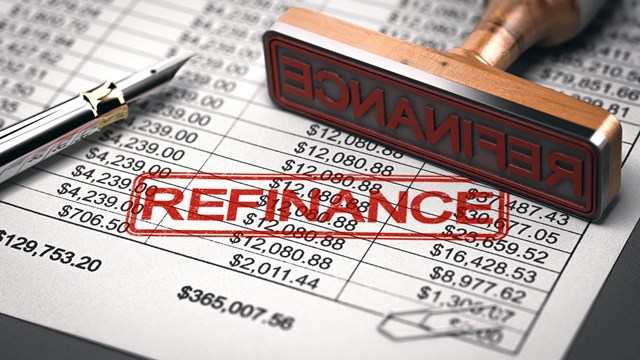
Leave a Comment